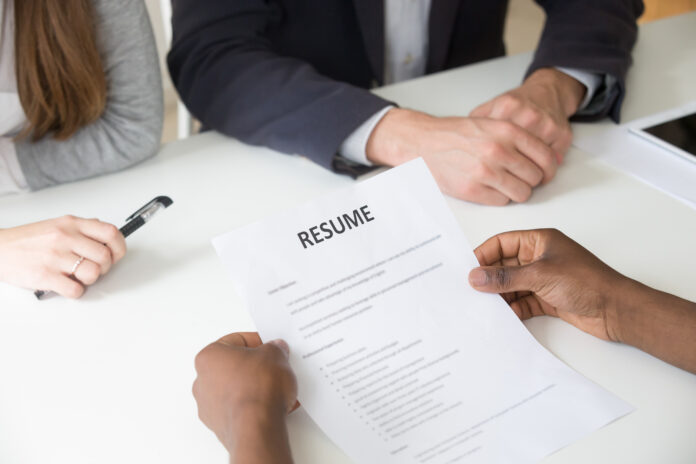By Kay Wicker
A Black man in Detroit is suing a local hotel after he claims he only received a job interview after reapplying for a position, having changed his name to sound more white.
Dwight Jackson filed a lawsuit against the Shinola Hotel on July 3, claiming he was denied a job when he applied as “Dwight Jackson,” but later was offered an interview when he changed his name to “John Jebrowski.” He initially applied under his real name in April for multiple jobs he was qualified for, including a job in reception. When he didn’t hear back, he reapplied with the same credentials under a different name.
Using an alias, Jackson was offered multiple interviews within the same week he applied. He accepted an interview and confronted the interviewer about the potential name bias but was denied the job following the interview.
His attorney, Jon Marko, told CNN, “To be denied a job in 2024 in your hometown, for the color of your skin, goes beyond dollars and cents. It goes into the psyche of a person.”
For their part, Anna Stancioff, senior corporate director of PR and brand communications of Sage Hospitality Group (which is Shinola Hotel’s operating partner) told CNN, “We take this allegation very seriously and do not tolerate discrimination of any kind. We are committed to fostering an inclusive workplace where everyone has the opportunity to succeed and are dedicated to building a diverse workforce that reflects the community.”
While it may surprise some that this kind of potentially blatant discrimination, also referred to as “name bias” in hiring, is still happening in 2024, author and human resources expert Dante King has a different perspective.
“I was on fire when I read this story,” King told theGrio. “We have to understand, both from a historically legal standpoint, but from a historically psychic standpoint, that this culture was designed to be anti-Black.
King, who wrote the book “The 400-Year Holocaust” and serves as an adjunct assistant professor of medical education at the Mayo Clinic College of Medicine and Science, added that in his experience, discrimination such as name bias is rooted in mindsets that have been ingrained in our culture since the Atlantic slave trade began 400 years ago. Despite the end of slavery and Jim Crow laws being struck down, white Americans still maintain benefits and often beliefs from a society that once validated them as more human than other races.
King added that white privilege isn’t just about money.
“White people benefit not just financially,” he continued. “But they benefit politically and sociologically, in terms of what people come to think about white people. They are then seen as capable people when incapable, [and] competent when they’re incompetent. They don’t have to prove that they are not deficient; there’s just a presumption that they are able.”
Meanwhile, he said, the opposite presumptions are held by some hiring teams about Black people.
“And so, to be Black,” he continued. “You’re always trying to work from this orientation that you are incapable, incompetent, deficient.”
King posited that the name-bias discrimination Jackson faced is still extremely prevalent today, and he’s right. As reported by CNN, a 2021 study published by the National Bureau of Economic Research, which sent out identical resumes under different names, observed that those with Black names received fewer callbacks. According to the Bureau of Labor Statistics, at 6.3%, the unemployment rate for Black Americans is nearly twice as high as it is for white Americans, which is presently roughly 3.5%.
“It’s important to understand the lies that white people tell to themselves every day, as though they’ve just solely worked hard to get where they are. That they haven’t had any help, but also that they’ve been fully prepared and [not] given opportunity. And so we know that that’s not true. And they are willfully or willingly admit to it,” King noted.
King said in consulting sessions he’s held, he’s asked attendees from all walks of life if they have ever been given a job they maybe weren’t fully qualified for; one instead based on their potential.
“Hands down, 90 to 95% of white people answer that question in the affirmative,” he said.
Knowing that this still occurs, King said there are steps Black candidates can take to safeguard against discrimination. The first step he suggests is for candidates to thoroughly research anywhere they are thinking of applying.
“Try to see who’s on the board of directors, who’s in the leadership in the C-suite, who’s on the executive team,” he said.
He added that it’s not a bad idea to schedule informational interviews early on in the process to get a sense of the vibe before you have a stake in their application process. Ultimately, you’re looking to see if this is an organization “where Black people are able to succeed and thrive,” he said.
If he could give any potential hiring teams a piece of advice, King said he’d urge them to recognize their own biases.
He said employers should ask themselves: “Who are they finding favor for? And why? And who are they against or not taking seriously or as seriously as they’re taking other individuals?”
King added, “Because what I also know, too, is that many biases are not necessarily implicit or unconscious. They’re just unspoken. People know who they prefer more.”



































